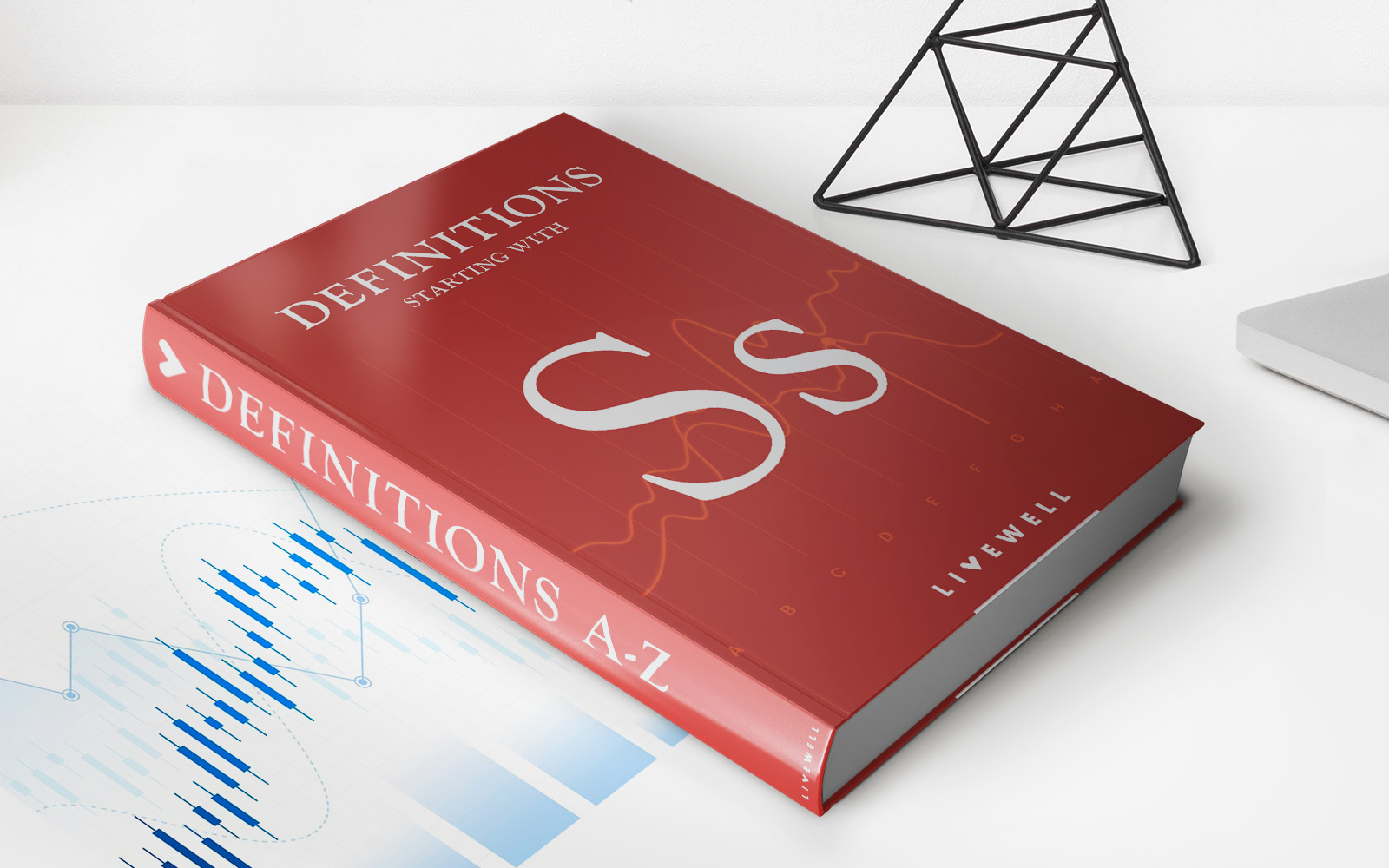Home>Finance>Credit Cards Which Do Not Require A Hard Credit Inquiry


Finance
Credit Cards Which Do Not Require A Hard Credit Inquiry
Published: March 5, 2024
Find the best finance options with credit cards that don't require a hard credit inquiry. Get the financial flexibility you need without impacting your credit score. Discover more now!
(Many of the links in this article redirect to a specific reviewed product. Your purchase of these products through affiliate links helps to generate commission for LiveWell, at no extra cost. Learn more)
Table of Contents
Introduction
Introduction
When it comes to managing your finances, maintaining a good credit score is crucial. Your credit score impacts your ability to secure loans, buy a home, or even land a job. One factor that affects your credit score is the number of hard credit inquiries on your report. These inquiries occur when a lender checks your credit report as part of their decision-making process. While a few inquiries may not significantly impact your score, multiple inquiries within a short period can raise red flags to lenders.
However, there are times when you may need to apply for a new credit card without wanting to risk a hard credit inquiry. Whether you’re working on improving your credit score or simply want to avoid any negative impact on your report, it’s essential to know that there are credit cards available that do not require a hard credit inquiry.
In this article, we’ll explore what hard credit inquiries are, why it’s beneficial to avoid them, and provide insights into credit cards that do not require a hard credit inquiry. Additionally, we’ll discuss the application process for these cards, empowering you to make informed decisions about your financial future without compromising your credit score.
What Is a Hard Credit Inquiry?
What Is a Hard Credit Inquiry?
A hard credit inquiry, also known as a hard pull, occurs when a potential lender reviews your credit report as part of their decision-making process. This typically happens when you apply for a new credit card, loan, mortgage, or any other form of credit. Unlike a soft inquiry, which may occur when a company pre-approves you for a credit offer or when you check your own credit, a hard inquiry is initiated when you actively seek credit. Each hard inquiry is documented on your credit report and can impact your credit score.
Hard inquiries provide lenders with a comprehensive view of your credit history and help them assess the risk of lending to you. While a single hard inquiry may have a minimal impact on your credit score, multiple inquiries within a short period can signal to lenders that you may be taking on too much debt or facing financial difficulties, potentially lowering your credit score.
It’s important to note that the impact of a hard inquiry on your credit score is temporary, and it typically diminishes within a few months. However, these inquiries remain on your credit report for up to two years, potentially affecting your creditworthiness during that time.
Understanding the distinction between hard and soft credit inquiries is crucial, as it allows you to make informed decisions when seeking new credit opportunities. By being mindful of when hard inquiries occur and their potential impact, you can take proactive steps to protect and improve your credit score.
Why Avoid Hard Credit Inquiries?
Why Avoid Hard Credit Inquiries?
Avoiding hard credit inquiries is important for several reasons, primarily because they can have a direct impact on your credit score. Here are some key reasons why individuals strive to minimize the number of hard inquiries on their credit reports:
-
Protecting Your Credit Score: Each hard inquiry can cause a small dip in your credit score. While the impact may be minimal, multiple inquiries within a short period can collectively lower your score, potentially affecting your ability to secure favorable loan terms or credit card offers.
-
Signal of Financial Distress: A flurry of hard inquiries can signal to lenders that you are actively seeking credit, which may be interpreted as a sign of financial distress or an urgent need for funds. This perception can make lenders hesitant to extend credit to you.
-
Preserving Creditworthiness: By avoiding unnecessary hard inquiries, you can maintain a higher level of creditworthiness, positioning yourself as a more attractive borrower to potential lenders. This can be particularly advantageous when applying for mortgages, car loans, or other significant lines of credit.
-
Long-Term Credit Health: Minimizing hard inquiries is a proactive step in safeguarding your long-term credit health. By being mindful of when and why these inquiries occur, you can strategically manage your credit applications and maintain a positive credit profile.
While hard inquiries are a natural part of the credit application process, being selective about when and where you apply for credit can help mitigate their impact. By understanding the implications of hard inquiries and the strategies for avoiding them, you can take control of your credit journey and work towards achieving your financial goals without unnecessary setbacks.
Credit Cards That Do Not Require a Hard Credit Inquiry
Credit Cards That Do Not Require a Hard Credit Inquiry
While most traditional credit card applications involve a hard credit inquiry, there are specific types of credit cards that do not require this rigorous assessment. These cards are designed to provide access to credit without impacting your credit score through a hard inquiry. Here are some common types of credit cards that typically do not necessitate a hard credit inquiry:
-
Secured Credit Cards: Secured credit cards are backed by a cash deposit that serves as collateral for the credit limit. Since the deposit mitigates the risk for the card issuer, they often do not require a hard credit inquiry. Secured cards are an excellent option for individuals looking to build or rebuild their credit.
-
Prepaid Cards: Prepaid cards, while not traditional credit cards, offer a convenient alternative for making purchases and managing expenses. Since they are not extensions of credit, prepaid cards do not involve a credit check or hard inquiry.
-
Retail Store Credit Cards: Some retail store credit cards may approve applicants without conducting a hard credit inquiry. These cards are often easier to qualify for, making them accessible to individuals with limited or fair credit history.
-
Student Credit Cards: Designed for college students and young adults, student credit cards may have more lenient approval requirements, potentially bypassing the need for a hard credit inquiry.
It’s important to note that while these types of credit cards typically do not require a hard credit inquiry, they may still perform a soft credit check or review other financial factors as part of the application process. Additionally, the terms and benefits of these cards can vary widely, so it’s essential to compare offers and understand the specific requirements before applying.
By exploring these alternative credit card options, individuals can access the benefits of using a credit card while minimizing the impact on their credit score. Whether you’re looking to establish credit, rebuild a damaged credit history, or simply avoid the potential drawbacks of hard inquiries, these card options offer flexibility and accessibility for a diverse range of financial needs.
How to Apply for a Credit Card Without a Hard Credit Inquiry
How to Apply for a Credit Card Without a Hard Credit Inquiry
When seeking a credit card that does not require a hard credit inquiry, it’s essential to approach the application process strategically. Here are some steps to consider when applying for a credit card without undergoing a hard credit inquiry:
-
Research Card Options: Begin by researching credit cards known for not requiring a hard credit inquiry. Look for secured cards, retail store cards, prepaid cards, and student cards, as these are more likely to have lenient approval processes.
-
Review Eligibility Criteria: Understand the eligibility requirements for each card, including factors such as income, credit history, and employment status. While these cards may not require a hard inquiry, they may have specific criteria for approval.
-
Check for Pre-Approval Offers: Some credit card issuers provide pre-approval offers to potential applicants based on soft inquiries or other data. These offers indicate that you are likely to be approved for the card without a hard credit inquiry.
-
Apply Online or In-Store: Once you’ve identified a suitable card, follow the application instructions provided by the issuer. This may involve completing an online application or visiting a physical location, depending on the type of card.
-
Submit Required Documentation: Be prepared to submit necessary documentation, such as identification, proof of income, and any required deposits for secured cards. Providing accurate and complete information can expedite the approval process.
-
Monitor Your Credit: After applying, monitor your credit report to ensure that the application process does not result in an unexpected hard inquiry. While rare, errors can occur, and it’s important to address them promptly to safeguard your credit score.
By following these steps and being diligent in your research and application process, you can increase the likelihood of securing a credit card without undergoing a hard credit inquiry. Additionally, maintaining responsible credit habits, such as making timely payments and keeping credit utilization low, can contribute to building a positive credit history, regardless of the type of card you hold.
Conclusion
Conclusion
Managing your credit wisely and strategically pursuing new credit opportunities are essential aspects of maintaining a healthy financial profile. While hard credit inquiries are a natural part of the credit application process, understanding when and how they occur can empower you to make informed decisions that align with your financial goals.
By exploring credit card options that do not require a hard credit inquiry, such as secured cards, prepaid cards, retail store cards, and student cards, individuals can access credit while minimizing the potential impact on their credit scores. It’s important to remember that while these cards offer accessibility, they may have varying terms and conditions, so it’s crucial to compare options and choose the one that best suits your needs.
When applying for credit cards without a hard credit inquiry, conducting thorough research, reviewing eligibility criteria, and monitoring your credit report are key steps to take. Additionally, maintaining responsible credit habits, regardless of the type of card you hold, can contribute to building and strengthening your credit history over time.
Ultimately, the ability to access credit without undergoing a hard credit inquiry provides individuals with flexibility and opportunities to manage their finances effectively. By being proactive and selective in your credit pursuits, you can navigate the credit landscape with confidence, knowing that you are making choices that support your long-term financial well-being.
Whether you’re working to establish credit, rebuild a damaged credit history, or simply want to avoid unnecessary credit score impacts, the availability of credit cards that do not require hard inquiries offers a pathway to financial empowerment and stability.














